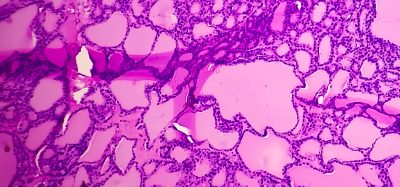Reducing sclerosis inflammation in mice
Posted: 27 April 2022 | Ria Kakkad (Drug Target Review) | No comments yet
Researchers have been able to reduce the chronic inflammation associated with multiple sclerosis in a mice model of the disease, by administering one of the resolving lipid mediators of inflammation, Maresin-1.


New research carried out by the Institut de Neurociències at the Universitat Autònoma de Barcelona (INc-UAB), Spain have shown it might be possible to reduce chronic inflammation associated with multiple sclerosis. The team found that these types of mediator substances, responsible for resolving the inflammatory process when it is no longer beneficial, are minimised in animal models of the disease. The use of these mediators could become a good strategy for the treatment of this autoimmune disease. The research was recently publishing in Journal of Neuroinflammation.
Acute inflammation is a protective response to infection that promotes tissue regeneration after injury. Once its function has been performed, a series of mechanisms regulated by lipids acting as mediators are responsible for resolving it. An error in the resolution response results in uncontrolled inflammation that is detrimental for the tissues. In multiple sclerosis, an autoimmune disorder in which the body’s defence cells attack the lining of the tail of neurons (myelin), the inflammation is persistent and plays a key role in the development of the disease.
The researchers were able to reduce the chronic inflammation associated with multiple sclerosis in a mice model of the disease, by administering one of the resolving lipid mediators of inflammation, Maresin-1. The substance exerted a therapeutic effect on mice, drastically reducing the number of proteins promoting inflammation (cytokines), as well as the number of cells in the immune system in both the spinal cord and the blood. A continuous administration of the lipid over time also protected neurons from demyelination and improved the effects of neurological deterioration caused by the disease.
In their study, researchers looked at samples from patients with multiple sclerosis and from mice models and found that there was insufficient production of Maresin-1 and other lipid mediators that end inflammation. The levels of these immunosuppressive substances, which were almost undetectable, prevented the inflammatory process from stopping.
NEWS: Researchers have discovered a biodegradable nanoparticle that could combat scleroderma, a rare autoimmune disease.
READ MORE
The study points to therapy with inflammatory-resolving mediators as an innovative and promising strategy for the treatment of multiple sclerosis and other autoimmune diseases needing further research. The next steps will be a series of tests and experiments to demonstrate the safety of the administration of this lipid, which could allow them to address possible efficacy studies in humans.
Related topics
Disease Research, In Vivo, Lipidomics, Lipids
Related conditions
Multiple Sclerosis
Related organisations
Institut de Neurociències at the Universitat Autònoma de Barcelona







